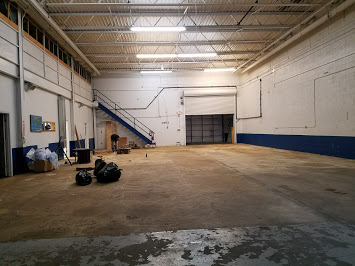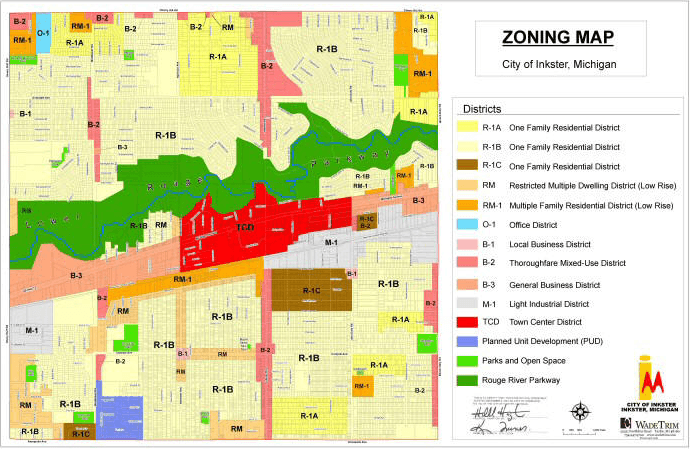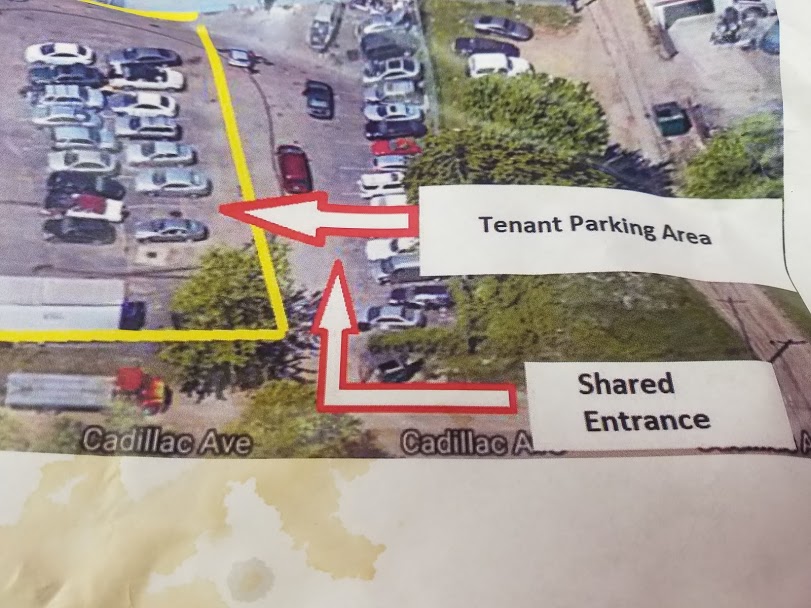Before You Sign a Commercial WAREHOUSE Lease Read these Secrets! 5 Things Nobody Ever Tells You!
Posted by Big Brand Wholesale.com on 1st Mar 2020
Today we are going to discuss the top 5 things nobody ever tells you about leasing a commercial property so you can be smart and pick the perfect warehouse with no regrets! These are in no specific order because all 5 are hugely important! Let's begin...

Zoning - OMG, this is such a massive deal that can absolutely destroy you. As I have mentioned in other blog posts; “Warehouse” can mean two different things: It could mean literal storage space (where you store furniture and other crap because you can’t keep it in your home for whatever reason) or it could mean an actual business that operates out of the warehouse. There is a world of difference between the two types of rentals even though they are both called “warehousing”.
The reason this is a HUGE deal is because of “zoning” and “ordinances”. Zoning is basically how the CITY determines the property should be used as (regardless of how great the landlord tells you the property is). For example, if you buy a house you can’t decide tomorrow to turn it into tanning salon because its “zoned” as “residential”, meaning people are supposed to reside / live in it. Equally, if you rent a storage space, you can’t start living in it or, if you lease a warehouse you can’t turn it into a mega mansion (*technically, you might be able to, but you would have to have it “rezoned” by the city, yada yada). SO, if you find a space that you would *like* to use as an eCommerce warehouse you have to make sure the zoning matches warehousing AND that you are legally able to conduct business out of it. This may absolutely amaze you, but if the zoning is for “retail” you LIKELY CAN NOT “warehouse” because retail zoning specifically means you will have walk-in customers of some form. There are a few ways to skirt around this legality but we will discuss this in a different article. Anyways, if you get a lease with the intention of operating an eCommerce business and then you discover you aren’t legally allowed to store stuff, ship or get deliveries, you are royally screwed. You CAN NOT break a lease because you didn’t research. It is NOT the landlords job to research for you (unfortunately).
SOLUTION: It doesn't matter how perfect the landlord tells you the property is. Even if he/she tells you they have had ten thousand other eCommerce businesses there, still contact the city BEFORE you sign a lease. Ask what the zoning for that specific address is. You can even ask them if you would be allowed to operate and eCommerce business. Some cities even have websites with zoning maps available online. A zoning map is just a map of the city with different colors that coordinate with different "zones":

Looking at the map above, you would want to go for "M-1" zoning which is called "Light Industrial" on this legend. Some cities will also have zones called "Mixed Use" which may work, depending on your city.
Along those same lines, there are also city ordinances that you need to look into. If you simply make a trip to city hall you can get answers to everything in one shot. NEVER, EVER sign ANYTHING until you know 100% for sure, FROM THE CITY, that you are able to fully conduct business at that address. If you are horrified that someone will lease the property in the meantime you could give a security deposit BUT MAKE IT CONTINGENT upon getting zoning approval from the city within 3 days, meaning, if you do not get warehousing approval from the city you get your deposit returned in full. If you do not follow zoning laws the city can, and will, literally shut you down completely.
Shared Utilities…

I have at least five four-letter-words to describe how I feel about “shared utilities”, and not a single one of those four-letter-words are “nice”, “love” or “good”. Shared utilities SUCK if you are an eCommerce business because this is how it works:

So as you can see, in this example there are basically 6 business sharing utilities because the auto shop also operates an office building that sells vehicles. Additionally they operate a parking lot of vehicles for sale.
When utilities are divided it is usually based on square footage of the property. So let’s look at the utilities used per business:
AUTO SHOWROOM, SALES LOT & SALES OFFICE: This business is going to use a lot of electricity. Specialty lighting and spotlights in the show room and parking lot are going to put a MASSIVE dent in the electric bill. If they wash vehicles it will drive up the water bill. Their walk-in customers will also help drive up the water bill due to bathroom usage.

An eCommerce businesses utility usage is marginal. We have three computer running and some overhead lights. Besides that, we flush the toilet a couple times a day and run a single pot of coffee 5 days a week.
Next to the eCommerce company is automotive painting. This business is an utter energy hog. Their electricity usage is through the roof due to heat lamps. It’s seriously insane.
Then there is a packaging plant and a manufacturing facility. Obviously both of these entities are going to be running a lot of machinery and, quite possibly, running 14- 24 hours per day.
So what ends up happening is the electric bill for the entire plaza comes and it’s $5,000+. The landlord then divides it by sqft. Even though the Auto Showroom has a ton of spot lights and high-power parking lot lights, the beef jerky plant runs dawn-to-dusk and the Auto Painting facility is running non-stop heat lamps to bake paint onto metal,, they all pay less than you because your space is more sqft. Since your space is the 2nd largest you get hit with paying far more a month for electricity than you actually consume.
Then there’s the water bill. You likely use more water at your house than you do at work, but since you have the 2nd largest space you will again get dinged with a lions-share of the bill.
This same bill-sharing can also apply to property taxes for the building, the gas bill, building insurance, "incidentals" and more.
What’s important is to find out if utilities are shared and how the amount is divided. If possible, negotiate a way to pay the proper share for an online business that uses marginal resources. There are actually online calculators that will instantly tell you how much water or electricity you use if you fill out the simple form. Once again, you must negotiate BEFORE you sign the lease. I strongly advise asking to see copies of the past 6 months of shared utility bills.
Ceiling Height - Everyone considers the sqft of the building when deciding if they want a space but few newbies consider the UPWARD space. Vertical space is essentially FREE, so take advantage of it! If you are able to get a 2,000 sqft space with 30ft ceilings you have substantially more space for merchandise than if you get a 4,000sqft space with 9’ ceilings! If your ceiling is 30ft high you can fit FIVE stacked 72” (6 foot) tall shelves! If your ceiling is 9 feet tall, you can fit only one 6-foot-tall shelf! That is an INSANE difference at a much lesser cost!
Usable Square Foot - We discussed this in detail in our article “Should I Lease a Commercial Warehouse or Storage Unit for My Online Business?”. I strongly encourage you to check out that article because we have a lot of diagrams explaining things nobody else will ever tell you! Basically, you want to make sure the sqft that you are leasing is actually the sqft you can USE. There's a lot of "dead space" within buildings and most of the time people don't realize a good layout versus a terrible layout. It is possible to lease a 1,500 sq warehouse and end up with under 900 sq of usable space! That is a ton of loss!
PARKING!!! I cannot emphasis enough, GET A DRAWING OF YOUR DESIGNATED PARKING SPOTS IN THE LEASE!!! Absolutely insist upon the landlord providing you with a clearly illustrated map of the property that specifically defines which parking spots or areas are exclusively yours. I did not do this at my first two warehouses and both ended up being ongoing drama. Here's the actual image from within my current lease that shows which half of the parking lot beings exclusively to me:

Not having parking can destory your business as much as improper zoning or unusable sqft! When there is literally nowhere for you, your employees (or anyone else you need to conduct business with) to park, its a major friggin problem. At our first warehouse we had a neighbor business who would take up every last spot in the parking lot. If we attempted to park in the neighboring parking lot they would threaten to call and have us towed. It was terrible! At the 2nd warehouse we VERBALLY had an agreement from the landlord that the first 8 spots in front of our warehouse belonged to us, but we had nothing in writing so there was absolutely nothing we could do. We even tried calling police and tow trucks but without the lease showing the parking nothing at all could be done. NOTE: Just because the parking lot *looks* empty when you go to view the property does NOT mean it is always empty! You MUST have the illustration drawn before you sign the lease. Also, make sure your parking is adequate! Just because it’s just you working at your new company today doesn't mean you won’t need 2 employees in a year!
BONUS CONTENT:
Watch us build up our warehouse in the 5 minute video below:
Where to Next? Popular Topics:
